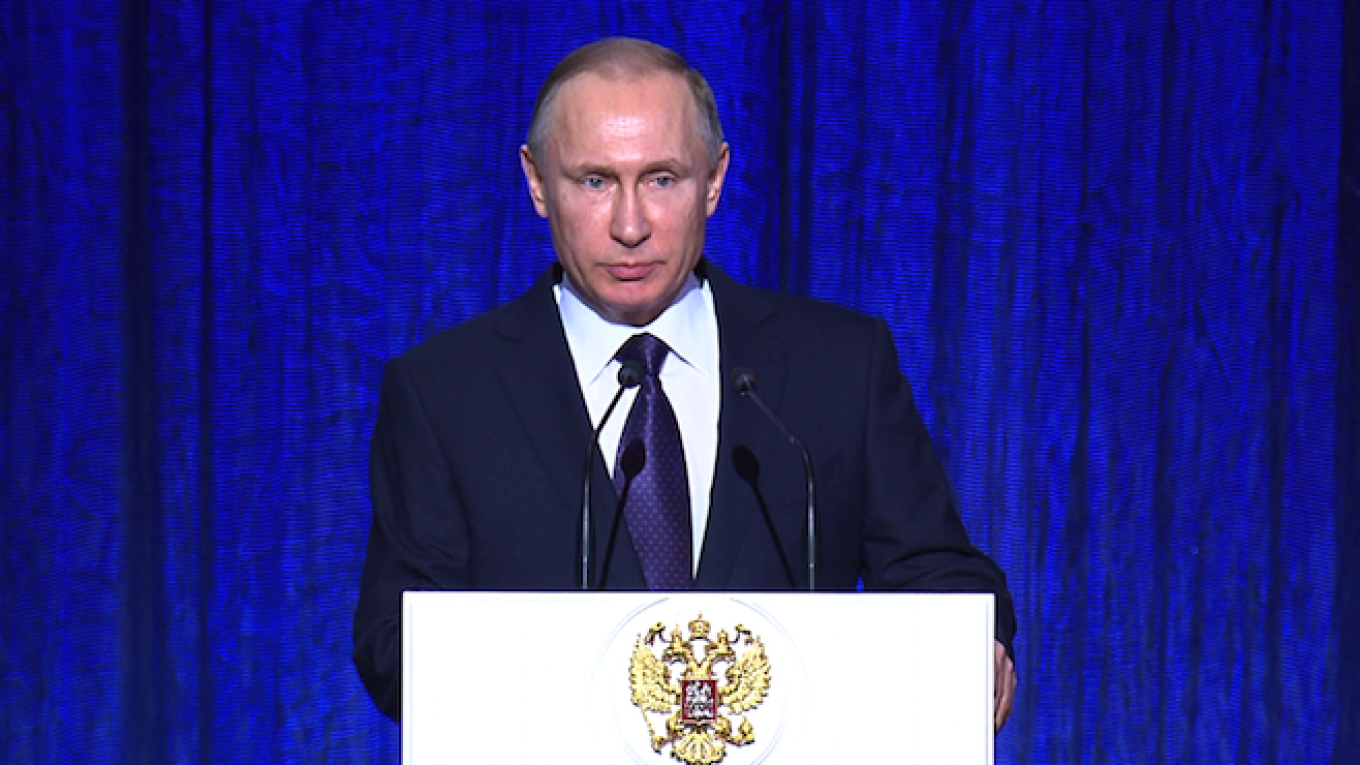President Vladimir Putin said he will protect Russians living in southeastern Ukraine from what he described as being “eaten up” by Ukrainian ?€?nationalists,?€? according to an interview broadcast Sunday.
?€?We proceed from only one thing, which is we cannot abandon the people who live in the southeast of the country to nationalists to eat them up,?€? Putin told the state-run Rossia television network.
Those people include ?€?not only ethnic Russians, but also Russian speakers who are looking toward Russia,?€? Putin said. ?€?There is nothing excessive in that position.?€?
He did not elaborate. Moscow claims Russian speakers are persecuted in Ukraine, and said last year, during the annexation of Crimea, that it sought to protect Russians and to support the drive of separatist insurgents in Ukraine's southeast.
But many of Kiev's government troops which are battling the insurgents also speak Russian, belying Moscow's claim.
Western governments accuse Russia of providing fighters and weapons to the separatists, but Moscow has long denied the accusations and claimed all of its citizens fighting alongside the rebels are independent ?€?volunteers.?€?
But during his annual news conference on Thursday, Putin conceded there were ?€?people involved in solving certain issues, including in the military sphere?€? in eastern Ukraine. He added that this ?€?does not mean that regular Russian troops are present there.?€?
Ukraine's President Petro Poroshenko interpreted the comment as an admission of Russia's military involvement.
?€?Today for the first time the president of the Russian federation has publicly admitted the presence of Russian troops in the Donbass,?€? Poroshenko wrote on his Facebook page.
More than 9,000 people have been killed in fighting in eastern Ukraine since the spring of 2014, according to tally by the United Nations.
A Message from The Moscow Times:
Dear readers,
We are facing unprecedented challenges. Russia's Prosecutor General's Office has designated The Moscow Times as an "undesirable" organization, criminalizing our work and putting our staff at risk of prosecution. This follows our earlier unjust labeling as a "foreign agent."
These actions are direct attempts to silence independent journalism in Russia. The authorities claim our work "discredits the decisions of the Russian leadership." We see things differently: we strive to provide accurate, unbiased reporting on Russia.
We, the journalists of The Moscow Times, refuse to be silenced. But to continue our work, we need your help.
Your support, no matter how small, makes a world of difference. If you can, please support us monthly starting from just $2. It's quick to set up, and every contribution makes a significant impact.
By supporting The Moscow Times, you're defending open, independent journalism in the face of repression. Thank you for standing with us.
Remind me later.


